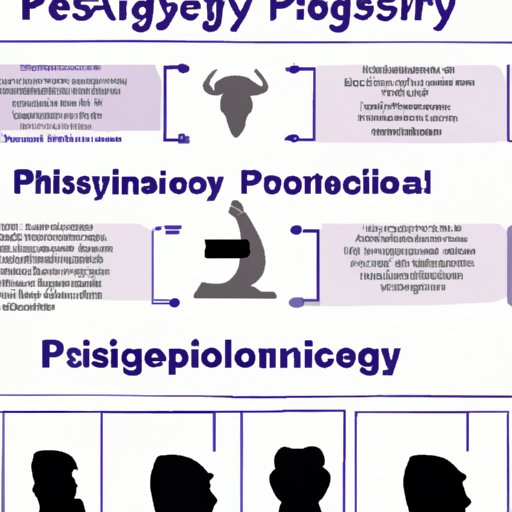Introduction
Psychology is the scientific study of the mind and behavior. It seeks to understand individuals and groups by establishing general principles and researching specific cases. But is psychology a science? This is a question that has been debated for decades, with many experts offering their opinions on the matter. To explore this issue further, it is important to look at the various perspectives on the classification of psychology as a science, as well as examine how psychology has evolved over time.
Exploring the Reasons Why Psychology is Considered a Science
The debate about whether psychology is a science is ongoing. Some argue that psychology is not a science because it does not follow the same scientific method used by other sciences, such as physics and chemistry. Others believe that psychology is indeed a science because it relies on empirical research, data collection, and analysis to draw conclusions. To better understand the argument, it is important to look at both sides of the debate.

Examining the Controversy Surrounding the Classification of Psychology as a Science
At the heart of the debate is the lack of agreement on what constitutes a science. According to philosopher Karl Popper, “a scientific statement must be falsifiable, that is, it must be possible to conceive an observation or an argument which negates the statement in question.” In other words, a scientific statement must be able to be tested in order to prove it wrong. While some argue that psychology follows this criterion, others contend that its theories are too vague and subjective to be considered scientific.
In addition, some critics point out that psychology does not always use the scientific method when conducting research. For example, many studies rely on self-report surveys, which can be unreliable due to response bias. Furthermore, there is often disagreement among psychologists about the interpretation of results, making it difficult to draw definitive conclusions from research.

Investigating the Role of Scientific Method in Psychological Research
Despite the criticism, it is important to note that psychology does use the scientific method in many ways. For example, researchers often use experimental designs to test hypotheses, collect data, and analyze the results. This type of research allows scientists to draw more reliable conclusions than would be possible without the use of the scientific method. Additionally, many psychologists have adopted evidence-based approaches to treatment and diagnosis, using scientific research to inform their practice.
Moreover, while some psychologists may disagree on the interpretation of results, they all agree on the importance of using the scientific method to conduct research. As psychologist B.F. Skinner once said, “Science is a way of trying not to fool yourself.” By following the scientific method, psychologists can ensure that their research is sound and valid.
Analyzing the Different Perspectives on Psychology as a Science
Although there is still disagreement on the classification of psychology as a science, many experts agree that it is important to consider the different perspectives on the issue. For example, some argue that psychology should be classified as a science because it relies on empirical research and the scientific method. Others, however, argue that psychology is more of a social science, as it focuses on the behavior and interactions of people rather than physical phenomena.

Comparing Psychology to Other Sciences and Disciplines
It is also important to compare psychology to other sciences and disciplines. For example, psychology shares many similarities with biology, such as the study of the brain and how it affects behavior. However, unlike biology, psychology does not focus solely on physical processes. Instead, it looks at the mental processes involved in behavior and how these processes can be influenced by environmental factors.
Additionally, psychology is similar to sociology in that both disciplines investigate how people interact with each other. However, psychology goes beyond simply observing behavior; it seeks to understand why people behave the way they do, and how these behaviors can be changed. Thus, while psychology has much in common with both biology and sociology, it also has its own unique qualities that make it distinct from other sciences and disciplines.
Investigating How Psychology Has Evolved Over Time as a Science
Finally, it is important to look at how psychology has evolved over time as a science. Initially, psychology was mainly concerned with studying the behavior of individuals. However, as the field has developed, it has expanded to include the study of group behavior, the effects of environment on behavior, and even the biological basis of behavior. This expansion has allowed psychologists to gain a greater understanding of how the mind works, and how different aspects of the mind interact with each other.
Conclusion
In conclusion, the debate about whether psychology is a science is ongoing. While some argue that psychology is not a science, others believe that it is indeed a science. Ultimately, it is important to consider the different perspectives on this issue, as well as examine how psychology has evolved over time. By doing so, we can gain a better understanding of the field and its place in the scientific world.
Ultimately, it is clear that psychology is a complex field that encompasses many aspects of human behavior and cognition. While there may be debate about whether psychology is a science, it is undeniable that it has made significant contributions to our understanding of the mind and behavior. As such, it is safe to say that psychology is indeed a science.
(Note: Is this article not meeting your expectations? Do you have knowledge or insights to share? Unlock new opportunities and expand your reach by joining our authors team. Click Registration to join us and share your expertise with our readers.)
